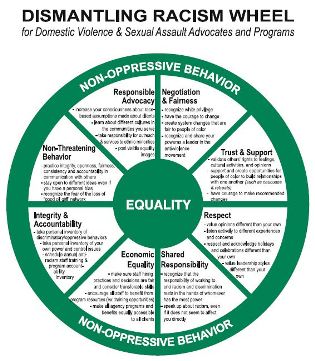Resources Library: Prosecutors/Attorneys
Start a Search:
Children Exposed to Domestic Violence: Resources for Communities
This reference list provides a compilation of reports, articles, websites and practical information for communities interested in addressing or learning more about the topic of children exposed to domestic violence and trauma-informed practices. Particular focus was placed on best or promising practices.
Culture, Language, and Access: Key Considerations for Serving Deaf Survivors of Domestic and Sexual Violence
This policy and practice brief summarizes the findings from work with the Deaf community and offers practical suggestions for increasing Deaf survivors’ access to victim services and other supports, including those offered by the criminal justice and medical systems. This information providse a framework for meeting the needs of Deaf survivors that is grounded in the cultural and linguistic needs of this community. It will also ground policymakers, practitioners, and first responders in the victim services field in the realities of this often-overlooked community.
Dismantling Racism Resources

Two wheels created by the Women of Color Caucus and Social Justice Task Force of the Virginia Sexual and Domestic Violence Action Alliance. These wheels were created in the tradition of the Power and Control Wheel created by the Domestic Abuse Intervention Programs of Duluth, Minnesota. The Perpetuating Racism Wheel demonstrates how agencies might use power and control to perpetuate racism. The Dismangling Racism Wheel demonstrates how agencies can use principles of equaliaty to dismantle racism within their agencies.
Elder Abuse and Domestic Violence in Later Life: Innovative New Resources for the Community
This archived webinar and power point presentation address the issues of elder abuse and domestic violence in later life. Additionally, they provide the faith-based community, service providers in aging and violence prevention and other interested individuals with a key new resource to help them respond appropriately and assist people in abusive situations to get the help they need. Lisa Furr with the Virginia Center on Aging and Adrienne Johnson with SeniorNavigator presented with Dr. E. Ayn Welleford (Virginia Commission on Alzheimer’s Disease and Related Disorders/Virginia Commonwealth University) moderating.
Elder Abuse, Neglect, and Exploitation
Who are the victims of elder abuse, neglect and exploitation? Does it surprise you to know that most elder mistreatment is committed, not by strangers, but by persons known to the victim, such as family members, caregivers and others in positions of trust? How is suspected abuse reported? And how can professionals work collaboratively to better address this complex issue?
These questions and more are addressed in this archived webinar and power point presentation titled “Elder Abuse, Neglect and Exploitation.” Dr. Paula Kupstas and Lisa Furr of the Virginia Center on Aging presented on the topic; Dr. E. Ayn Welleford (Virginia Commission on Alzheimer’s Disease and Related Disorders/Virginia Commonwealth University) moderated the discussion.
https://alzpossible.org/elder-abuse-neglect-and-exploitation-2/

